Jordan McMillan: Partick Thistle & SFA abandoned me, says banned defender
- Published
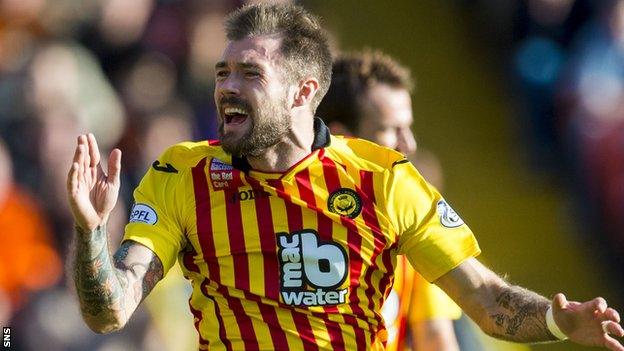
McMillan's last game for Thistle was in December 2014, but he hopes to return to the game
Jordan McMillan has described how he felt abandoned by Partick Thistle and the Scottish Football Association after failing a drugs test in December 2014.
The 27-year-old defender was banned for two years - recently reduced by a month - having tested positive for cocaine.
McMillan denies deliberately taking the drug, but UK Anti-Doping, external and the SFA operate a strict liability policy.
"Going into my first hearing the SFA didn't want anything to do with it. My club abandoned me," McMillan said.
A policy of 'strict liability' means athletes are responsible for what is in their body, regardless of how it got there.
McMillan's defence rests on an admission to police by a family acquaintance that he had put cocaine in a drink, which he then mistakenly gave to McMillan.
The player contrasts his situation with that of Jake Livermore, the Hull City midfielder who admitted taking cocaine but avoided a ban because the English FA is not bound by UKAD's rules and decided that Livermore's "unique circumstances" mitigated his behaviour.
"It's the consistency part of it," McMillan told BBC Scotland.
"You've got guys in England admitting taking banned substances and there should be four-year sanctions and they're walking away.
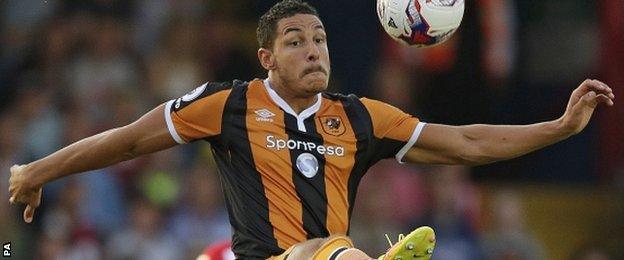
Livermore tested positive for cocaine almost a year after his newborn son died
"Whereas I'm innocent, going to the Procurator Fiscal, to police, getting that documented; UKAD believed what I said was true but because the National Anti-Doping Panel didn't, I'm still hit with a two-year ban.
"That to me isn't consistent and that's the reason I've still fought on and I will continue to fight to clear my name because I am innocent.
"Good luck to Jake Livermore and his legal team. His football association, his governing body, has stuck by him, and his club - two things I never had.
"Of course I feel let down. They never helped me in any way but I'm big enough and ugly enough to go it alone and I've done that."
Jake Livermore: Failing drugs test saved my Hull City career
Asked what more he would have expected the SFA to do, McMillan said: "We had a couple of meetings regarding certain things to do with UKAD, which they could have helped me with, but they just passed the blame totally on to them and when we went to UKAD, they did the same [passed the buck].
"Really everybody's just closed ranks even when we've got hard evidence and paperwork to prove what's right and wrong, they still don't want to listen.
"But I'm at the end of the tunnel and I don't really want to go into too much about that."
Thistle 'responded fairly and professionally'
The SFA declined to respond to McMillan's comments but Thistle, who terminated McMillan's contract in February 2015, said they were "extremely disappointed with McMillan's comments in relation to the way the club handled the situation around his failed drugs test".
A spokesperson told BBC Scotland: "We continue to believe we responded in a fair and thoroughly professional manner and stand by the action taken at the time.
"It is particularly disappointing to read that Jordan believes he was "abandoned" by the club especially given the fact that we did a great deal to protect both his reputation and career."
McMillan insists he is not looking for sympathy but admits the period since testing positive has "been hell".
"Being taken away from the only thing I've known - my career - and having to still provide for my family, my life's been turned upside down," he continued.
So what has kept him going over the last 18 months or so? "Knowing I'm innocent for one. That's the most important thing," he underlined.
"I wouldn't have gone 18 months having done something because I know if I'd done it and I'd said I'd done it, I'd probably have been back playing by now but it's something I wasn't willing to do.
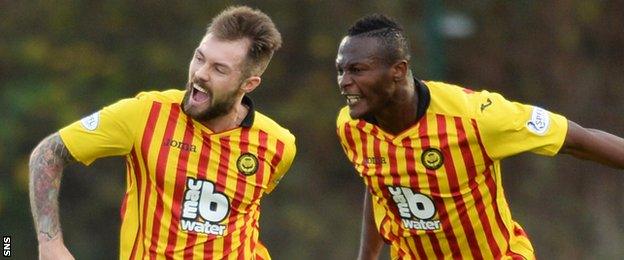
McMillan celebrates scoring against Hamilton in November 2014 with former Thistle team-mate Abdul Osman, but a month later his life was 'turned upside down'
"These panels and hearings work on the balance of probability. I wasn't charged with failing an anti-doping test, they charged me with not proving on the balance of probability what happened to me.
"I think they wanted me to tuck my tail between my legs and go away quietly but it's not in my nature to do that. I'm innocent so I had to fight for what I knew was right. It's been hard, it's done everything to me - financially, my family - but I'm out the end of it now."
Despite falling foul of the strict liability criteria, McMillan believes it should be in place.
"I believe athletes, especially footballers up here, should know more about it," he added.
"I believe the majority of players don't have a clue about it, I wasn't really familiar with it myself. I know now what it consists of but I'm the victim of a crime. How can I stop myself being the victim of a crime and still be given a full sanction?"
'I'm not involved in anything to do with doping'
That was reduced by a month at a recent appeal, which he describes as a small victory.
"I just wish I hadn't served 18 months and I'd got this a long time before but it's a victory nonetheless," he acknowledged.
"It's been hard, I'm not going to lie - a hearing and two appeals - and it's taken me this long to get it (reduced), albeit a month but I'm just looking forward to getting back and kicking a ball again."
McMillan is realistic enough to know his name has been tarnished by the episode but believes it will not prevent him getting back into the game.
"I hope not because I've spoken to a few clubs and I know enough people in the game who know me as a person and know I'm not involved in anything to do with doping," he said.
"So I hope that doesn't stick with me. I hope it's just about my footballing ability - what I can do on a park.
"It possibly will [be a stigma]. With the internet and the papers that's just the way it is. It's not (a problem) for me, it's more for my family."
- Published30 August 2016
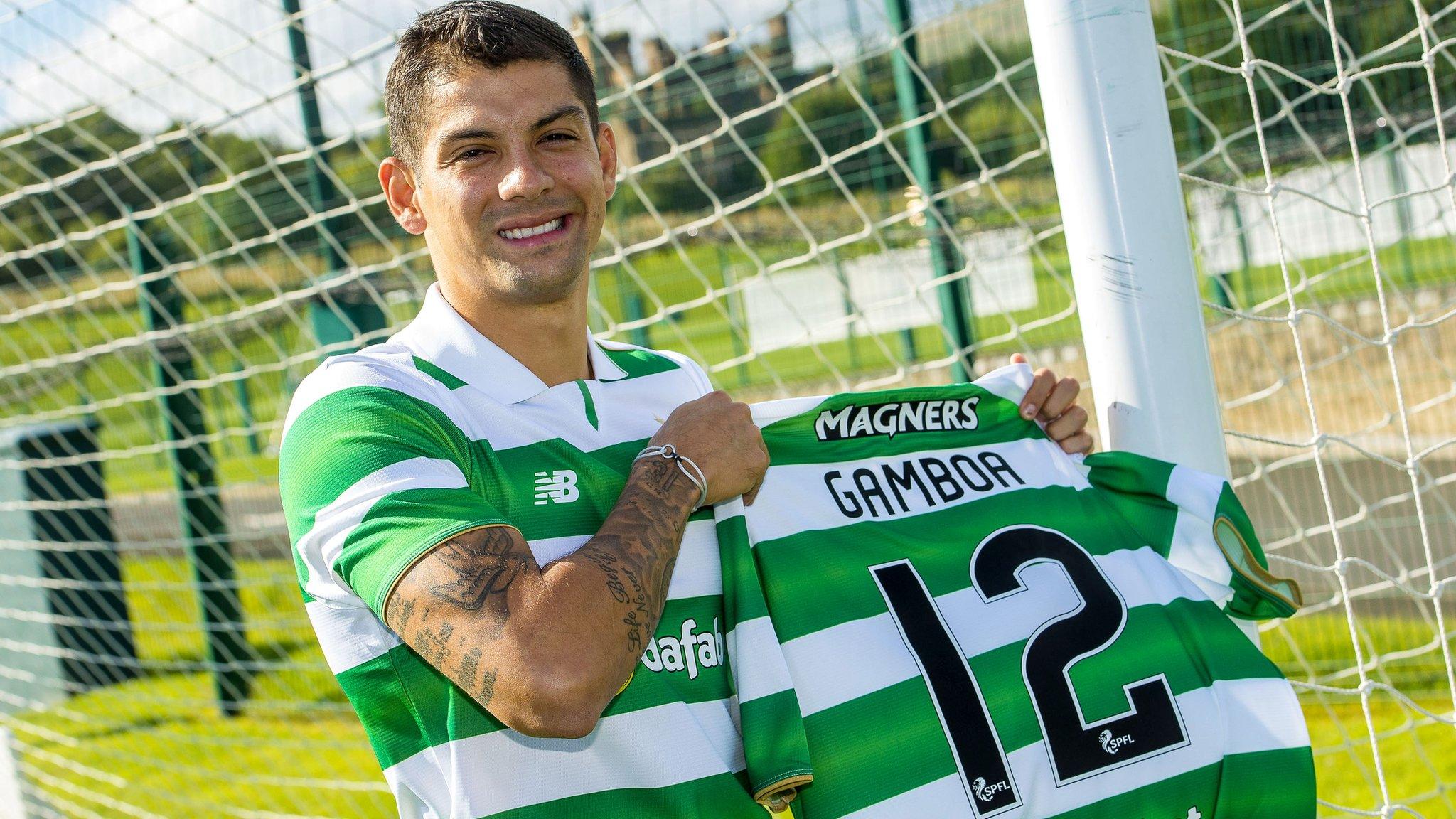
- Published29 August 2016
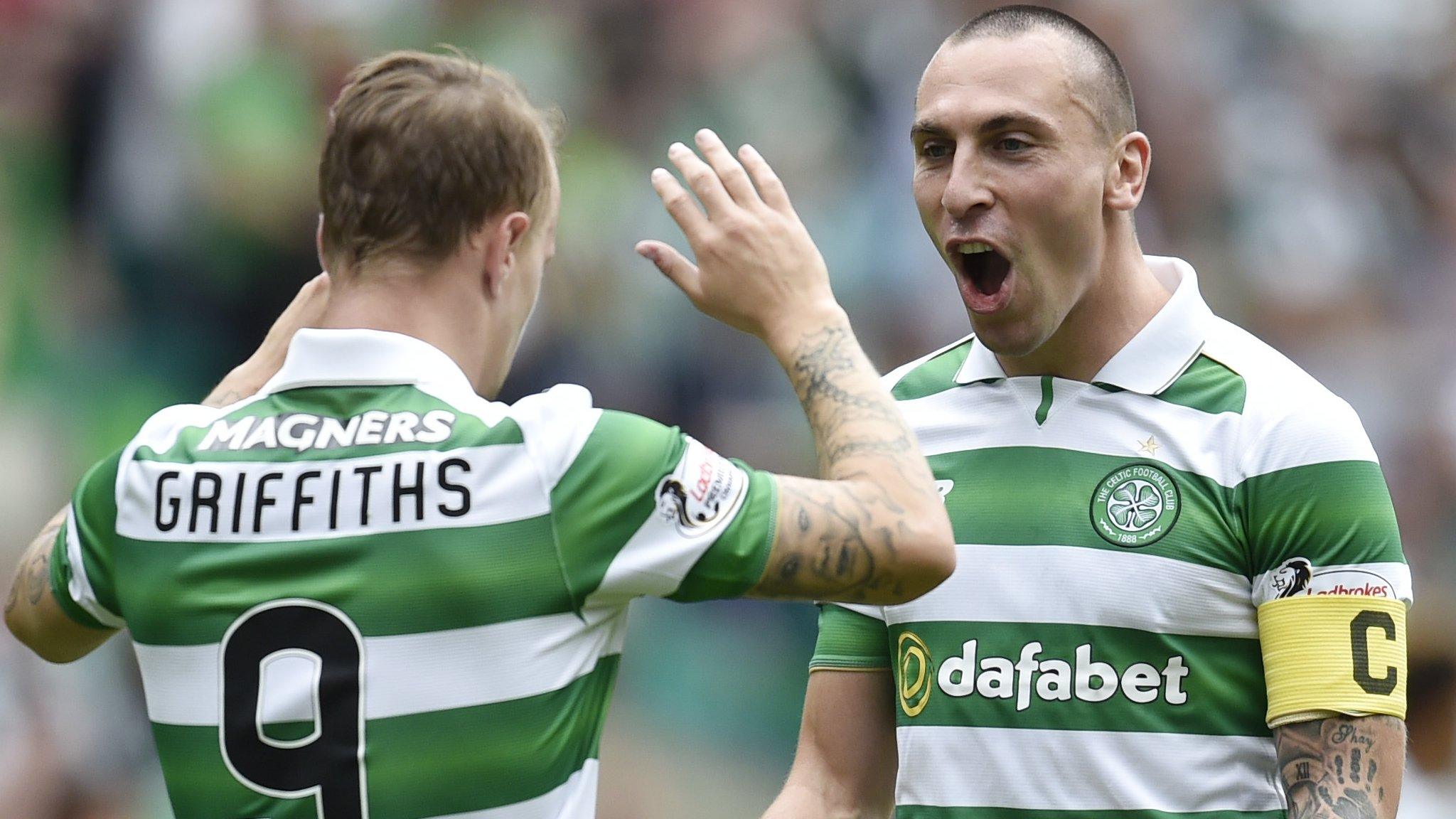
- Published18 August 2016
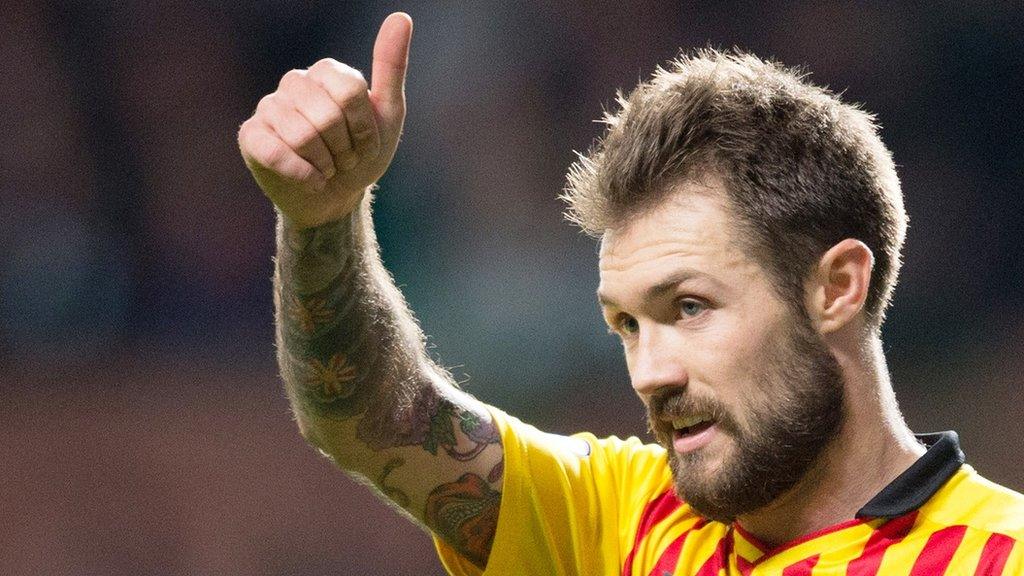
- Published26 August 2016
